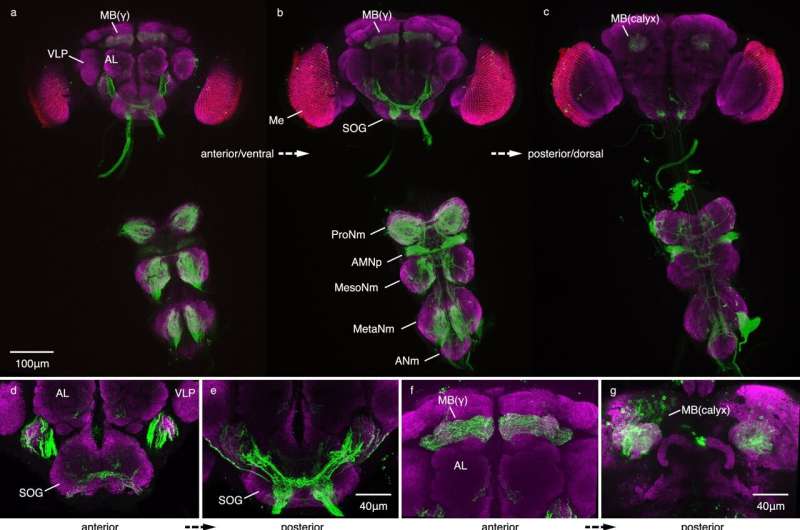May 3, 2024 report
'Degree of Kevin Bacon' gene provides possible basis for central players in group connectedness

Bob Yirka
news contributor

A team of biologists and geneticists at the University of Toronto at Mississauga has found a possible genetic basis for a central player in group connectedness. In their study, in the journal Nature Communications, the group conducted genetic experiments with fruit flies.
Prior research has shown that a wide variety of animals form social groups that behave in some instances as a collective: elephant herds, for example, or bird flocks or humans at sporting or music events. Some prior research has even suggested that such groups are only able to form and behave as they do because of central players, a trait they describe as "high betweenness centrality." In this new study, the research team found evidence that such central players may have a genetic trait that makes them suited for the job.
Noting that fruit flies engage in collective behavior and also have relatively simple nervous systems, the researchers focused on them to see if they could find the genes responsible for certain individuals becoming central players. They used gene editing techniques to knock out certain genes of individual flies that they suspected were central players. Without the genes, the flies played a less active role in helping the group to connect, resulting in less harmony.
The researchers discovered two variants of a gene called "degrees of Kevin Bacon" (dokb)—named for the actor linked with the theory of "six degrees of separation" between any two members of a certain group, such as actors. They also found that adding the genes to other non-central players tended to elevate them to a more central role in group behavior.
The researchers note that the dokb genes were part of the central nervous system, which suggests that it is possible that other animals, such as humans, also have similar gene variants. Their findings could serve as an entry point for new types of studies in the fields of social networks and the interrelationships among individuals in groups.
Written for you by our author —this article is the result of careful human work. We rely on readers like you to keep independent science journalism alive. If this reporting matters to you, please consider a (especially monthly). You'll get an ad-free account as a thank-you.
More information: Rebecca Rooke et al, The gene "degrees of kevin bacon" (dokb) regulates a social network behaviour in Drosophila melanogaster, Nature Communications (2024).
Journal information: Nature Communications
© 2024 Science X Network
















